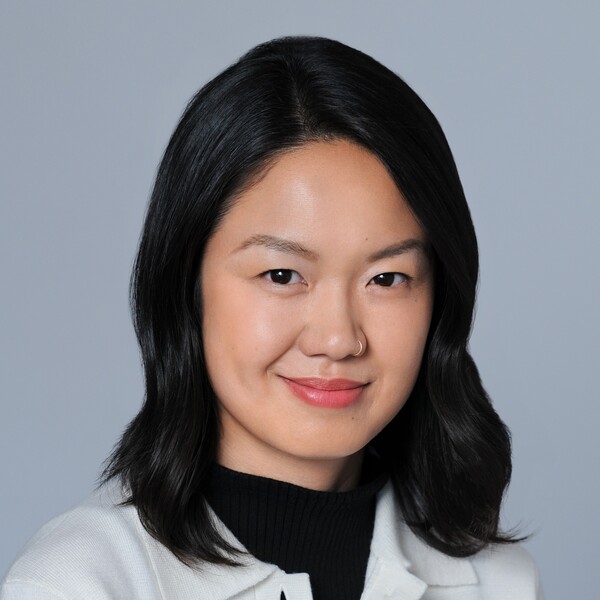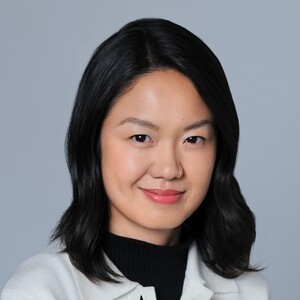Dr. Quinn Wang is a Duke- and UCSF-trained ophthalmologist turned two-time venture-backed founder. She currently leads Doctors in Network (DIN), a workforce innovation platform that gives surgeons the freedom to operate where and when they choose—blending the flexibility of locums with the stability of full-time roles. We had the privilege of speaking with her about her journey from the operating room to building two venture-backed startups. Her reflections offer a compelling look at what it means to lead and innovate across vastly different arenas—and the enduring principles that have guided her through both medicine and entrepreneurship.
✨ Update (9/5/2025)
Since this interview, Doctors in Network has officially launched its first Rotating Surgeon cohort. The program begins with cataract surgeons and is designed to blend the freedom of locums with the continuity and stability of long-term partnerships.
As part of Cohort #1, surgeons will:
Travel regionally on a recurring schedule to provide cataract surgery in underserved hospitals
Receive a signing bonus, fair-market per diem, and equity in DIN
Help design and refine protocols, collaborate with local teams, and directly shape this new model of surgical staffing
This is a rare opportunity to be part of an inaugural group defining how specialty surgery can be practiced in the future. Learn more and apply here.
Or, book an appointment with Quinn.
What motivated you to found Doctors in Network, and what gap did you see in the system?
In private practice, I felt constantly squeezed. Coding, documentation, and administrative demands were a steady source of stress, and most of my time was spent managing low-acuity medical problems instead of performing surgery, the work I had trained years to do. When shelter-in-place orders closed down my clinic and canceled all my surgeries, I began to question whether there was any real stability left in medicine.
Around the same time, I watched my nonmedical friends gain more flexibility in their work-from-home arrangements. Meanwhile, recruiters and locums kept reaching out with “better fit” jobs for “go-getters” in far-off places that didn’t appeal to me. That contrast made me wonder why surgeons couldn’t also have more work flexibility while being able to maximize surgical volume, maintain continuity of care, and earn fair compensation.
This frustration had been building for years, and my conviction only grew as I heard the same concerns from nearly every surgeon I spoke with. After my experience building a first company that ultimately didn’t align with my values, I decided to go all in on solving this problem.
Doctors in Network (DIN) is about empowering surgeons to operate anywhere, anytime, on their terms. Building a model that combines the flexibility of locums with the stability of a full-time role is complex, but advances in AI can handle much of the manual, time-consuming work that once made this approach impractical. The focus now is on creating the infrastructure and workflows to make it sustainable.
What would you say to a physician with a startup idea but no tech background?
I built my first company, which went on to be backed by YC and Khosla Ventures, using Typeform. I prototyped DIN, also VC-backed, with GPT, DeepSeek, and V0.
This is to say that you don’t need to be technical to start, but you do need to be resourceful. Your domain expertise is the moat. Start with no-code tools, experiment, and pressure-test your assumptions. Bring in collaborators who complement your skill set, but also learn enough about the tech side to ask the right questions and make informed decisions.
The value isn’t in writing code. It’s in knowing the problem better than anyone else, and as a physician, that’s your advantage.
Where do you see the biggest opportunities for physicians in the startup ecosystem?
Physicians have a front-row seat to the friction points in healthcare. The biggest opportunities are in areas where small, targeted changes can create meaningful impact. This includes:
Streamlining care coordination
Improving patient prep and follow-up
Building tools that make the day-to-day work of practicing medicine more sustainable
That means adding support without adding more work, and being thoughtful about how new tools fit into existing workflows.
What’s one opportunity in healthcare that feels so obvious to you—but it seems like everyone else is missing it?
Making it easier for physicians to stay in practice.
Most solutions focus on the patient side, but keeping skilled clinicians in the workforce has a direct, compounding impact on both access and quality. Supporting the workforce is not just a nice-to-have; it is the foundation for better care delivery.
Many tools designed to reduce clinician burnout target a single part of the job, usually documentation. While documentation is understandably burdensome, burnout comes from many other sources that are harder to quantify. Addressing these means promoting autonomy, protecting agency, and creating real work-life balance.
What was your YC application process like? Any advice for other physician-founders applying? What surprised you most about the YC experience?
Applying was a last-minute decision, and it turned out to be one of the best I’ve ever made. I encourage every founder to at least go through the exercise of filling out the application, because it forces you to articulate your thoughts and business model in extremely concise ways (each section has a strict character limit).
My advice: Frame your answers the same way you explain complex concepts to patients—use plain language, focus on impact, and never assume prior knowledge.
The biggest surprise about YC was how out of my depth I felt, and how much it pushed me out of my comfort zone. For example, when I started, the idea of putting my picture and bio on my website felt too cringe and self-promotional. I eventually realized that visibility is one of the most powerful ways to control the narrative and build trust.
What’s your biggest piece of advice for physicians who want to raise their first round?
Keep it simple and don’t assume understanding, even with healthcare investors who should know the space. Everyone has blind spots, and no one knows your problem as well as you do.
Fundraising is rarely quick—it often takes six months or more—and it’s built on relationships and effective storytelling. Know your audience and translate your expertise in a way that resonates. Investors don’t need a CME lecture; they need a clear picture of the problem, why it matters, and why you are the right person to solve it. Keep the story straightforward, relatable, and anchored in outcomes.
What’s next for you and Doctors in Network?
Our immediate focus is building the first cohort of Rotating Surgeons, starting with cataract surgeons who have at least two years of practice experience. We’ll match them with pilot sites that align with their skills and preferences, then refine our workflows based on what we learn from those early pilots.
Longer term, our goal is to expand the Rotating Surgeon model into more hospitals and specialties. We want flexible, high-quality surgical staffing to become as common as locum tenens coverage—while also giving surgeons the time and freedom to pursue interests outside of medicine that make their lives more exciting and fulfilling.
Fast Facts
One book every physician should read?
Confessions of an Advertising Man by David Ogilvy — a sharp, engaging look at risk-taking and the art of storytelling, two skills just as important in building a company or shaping a career in medicine as they are in advertising.
Favorite tool or mindset shift that helped you the most?
Building comfort with uncertainty. In startups, the ground is always shifting. There’s rarely a perfect plan or perfect timing, and learning to act anyway is a superpower.
What do you wish more physicians believed was possible?
That they can shape the systems they work in. Physicians have more leverage than they realize when they step into the right rooms. It starts with recognizing your worth and being willing to take a bet on yourself—whether that’s sending a cold email, starting a conversation with someone outside your usual circle, or posting your perspective online. Those small actions are often the first steps toward influence and change.

